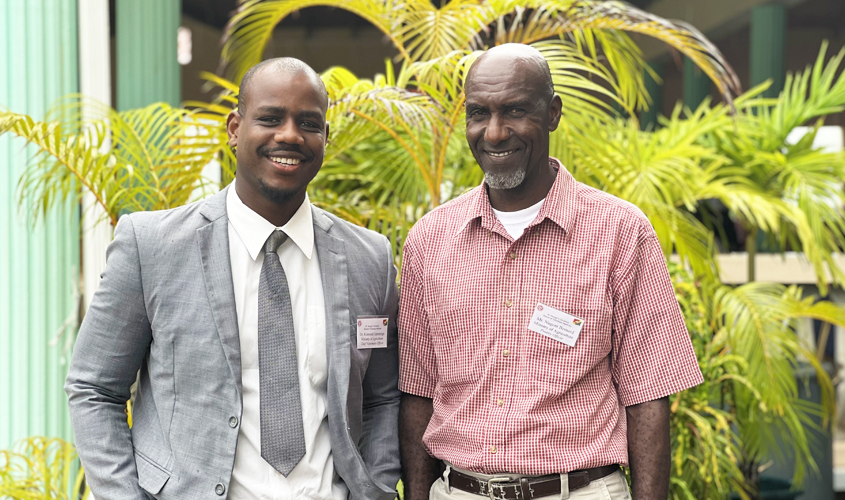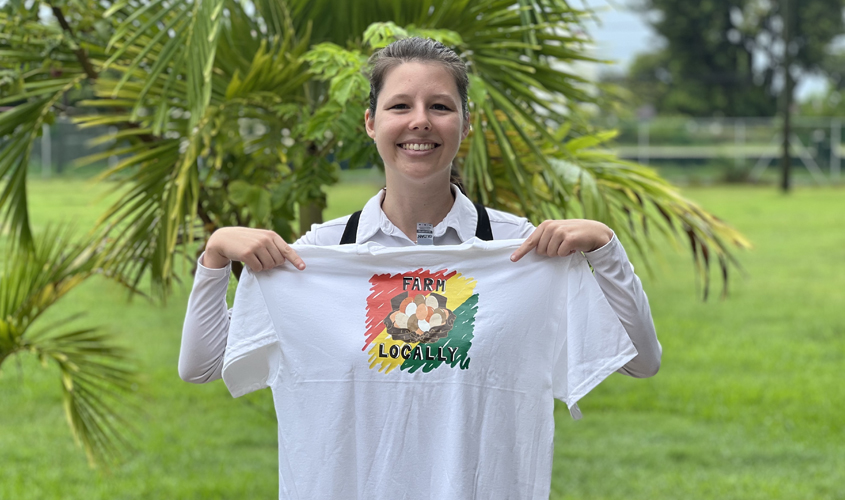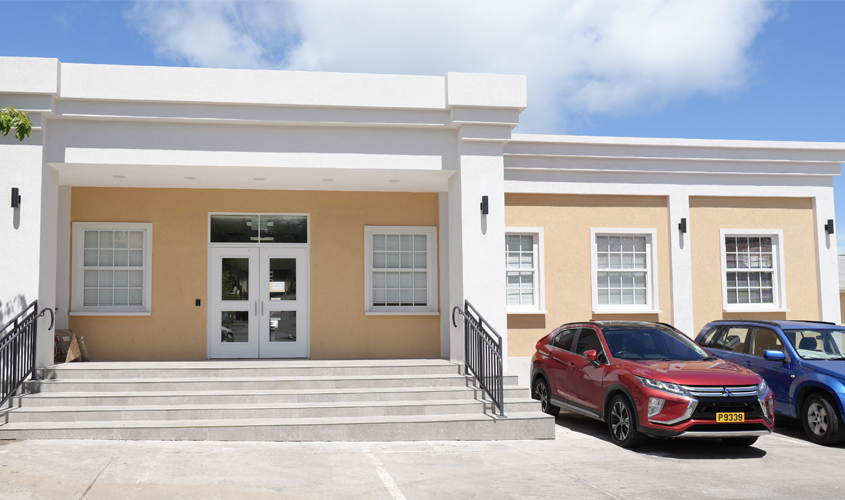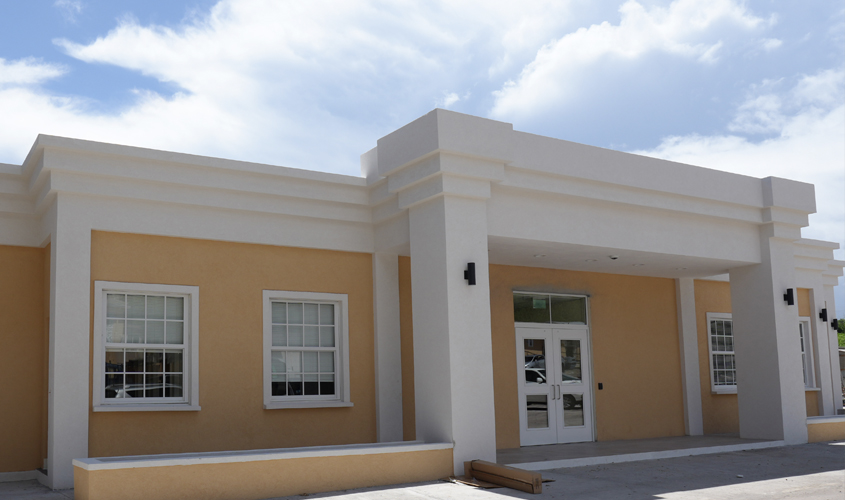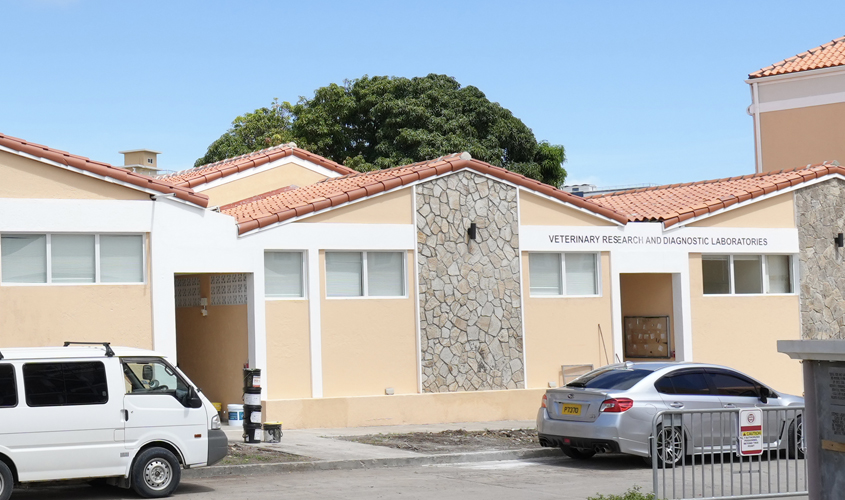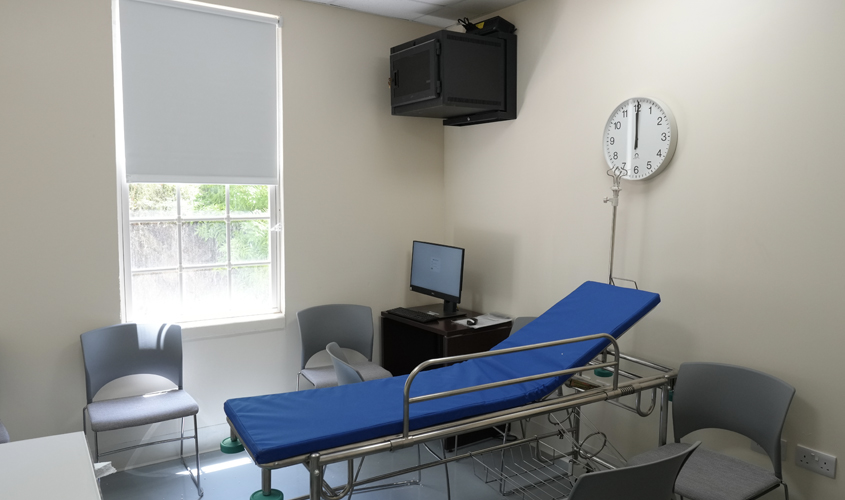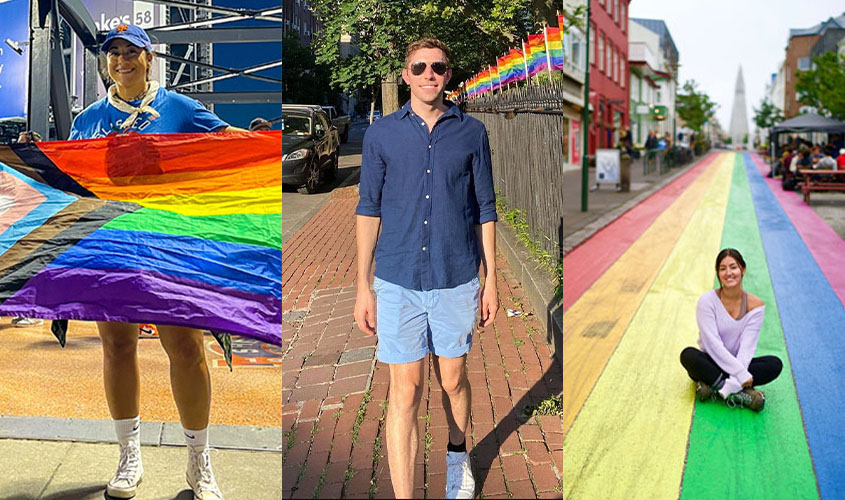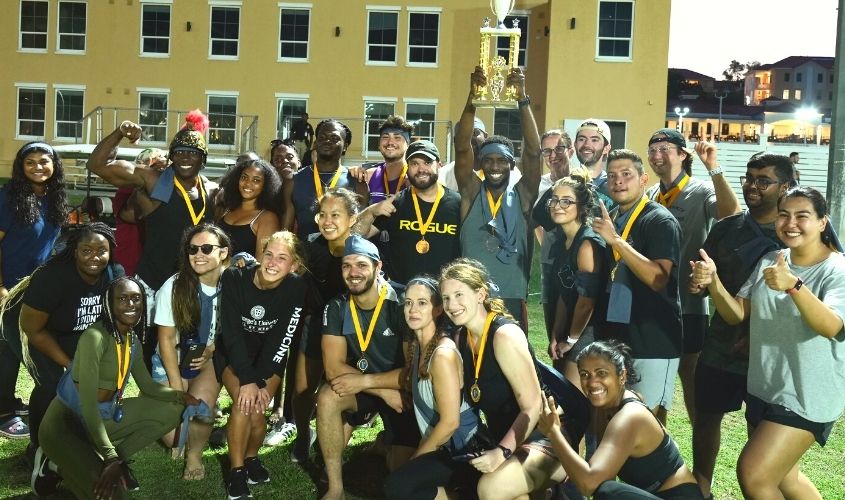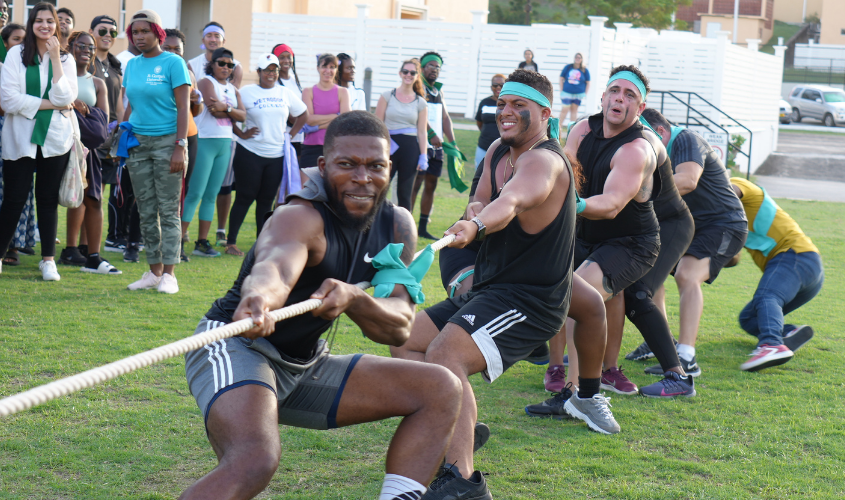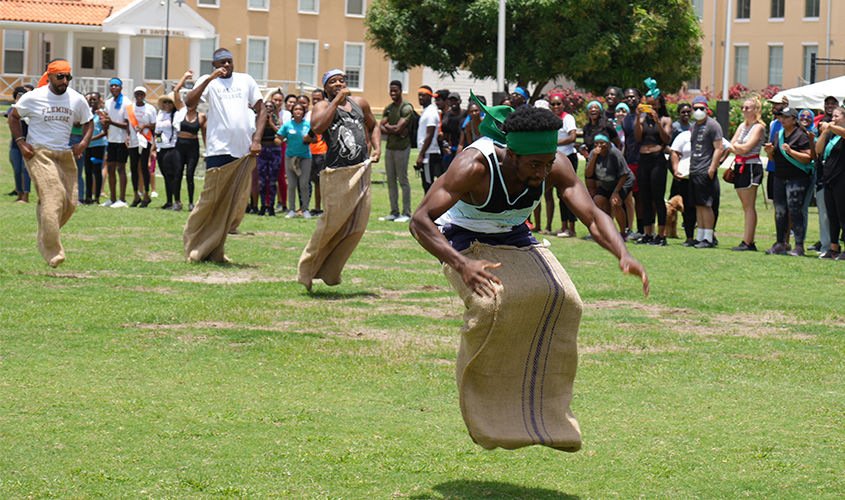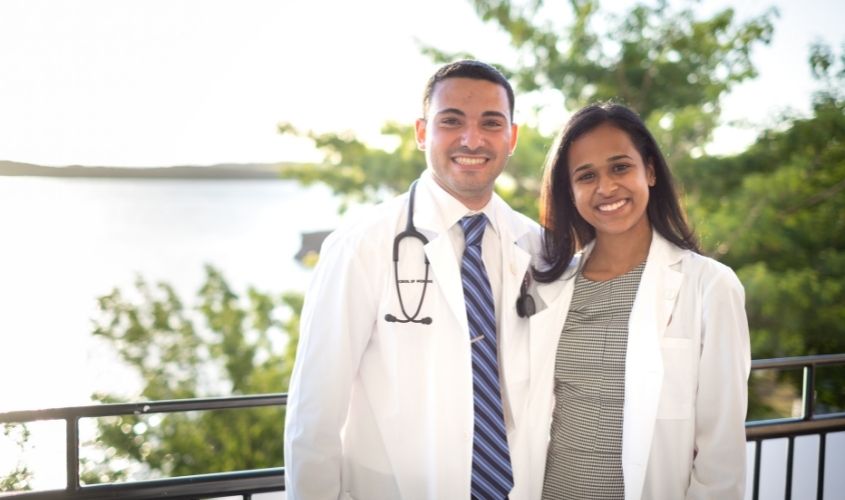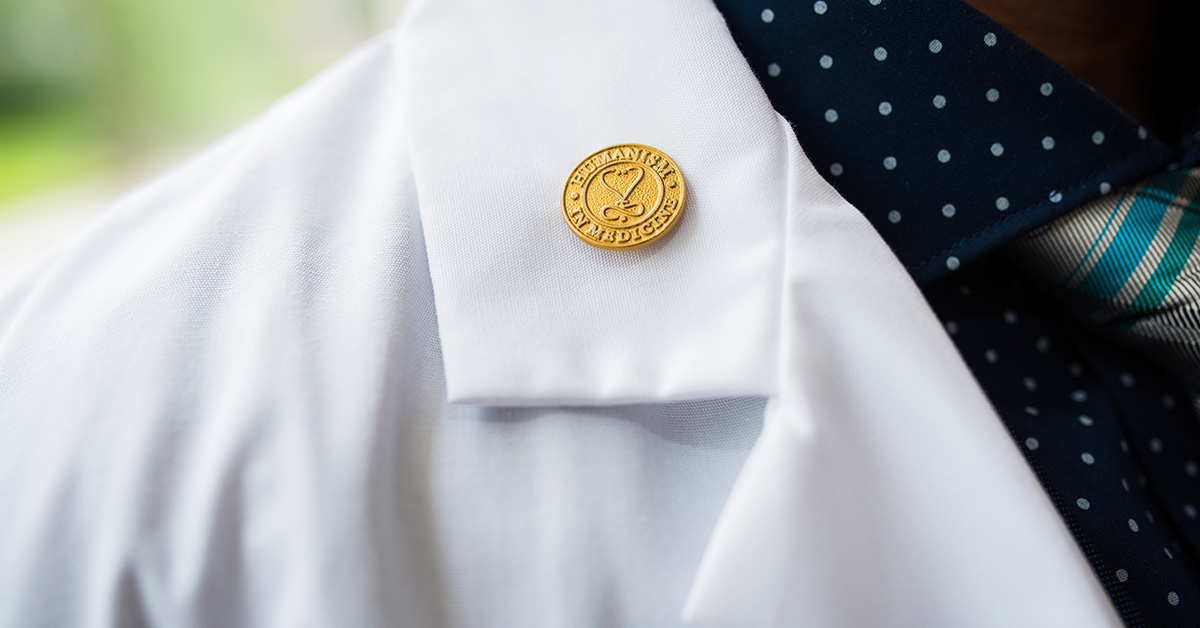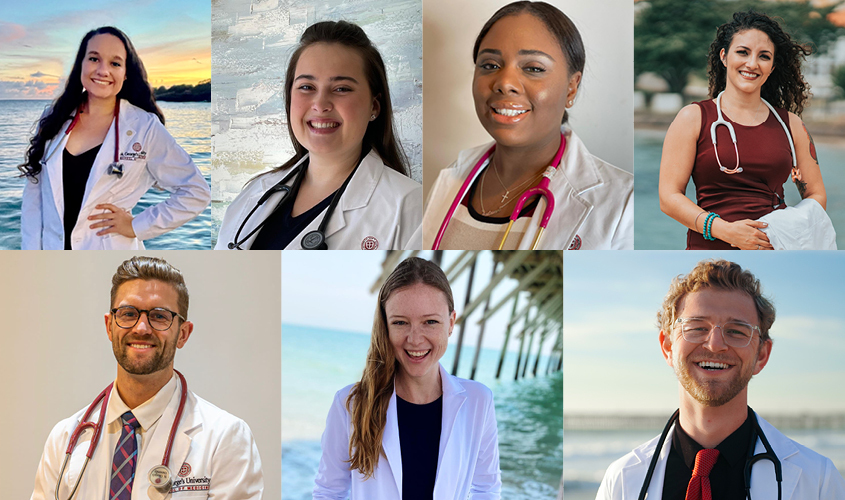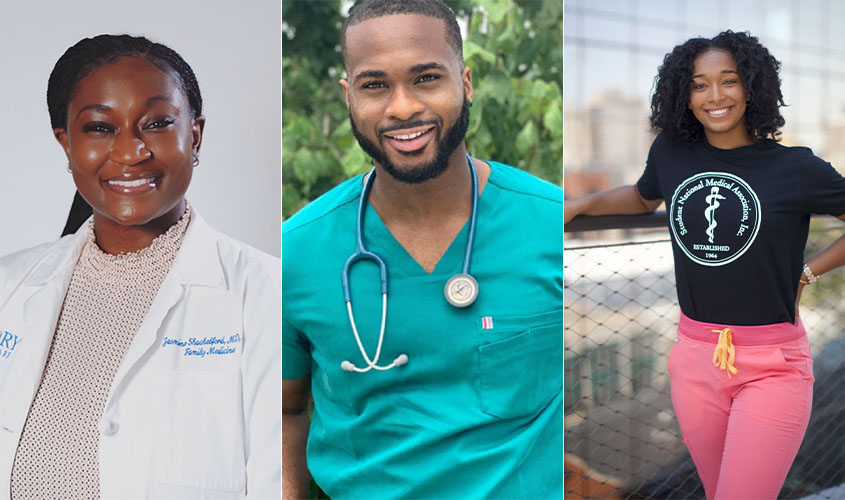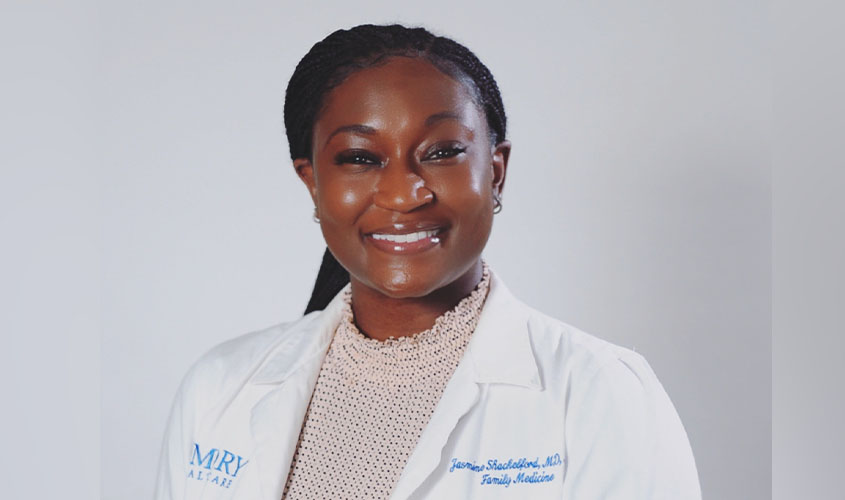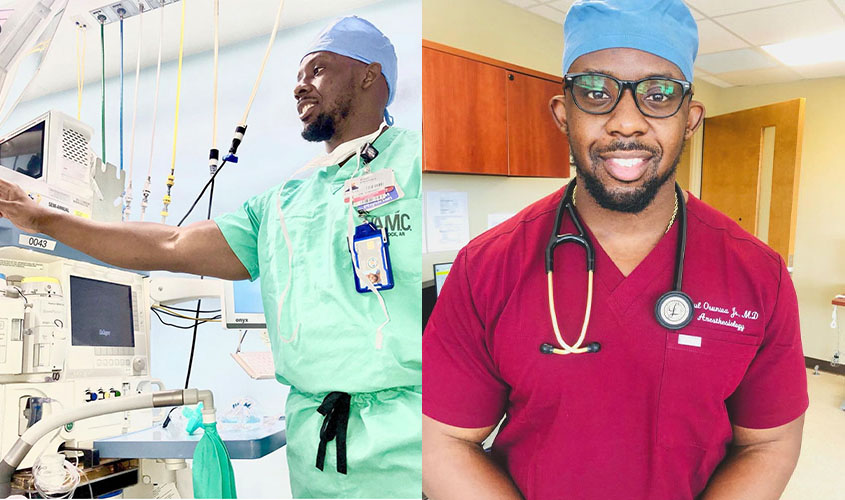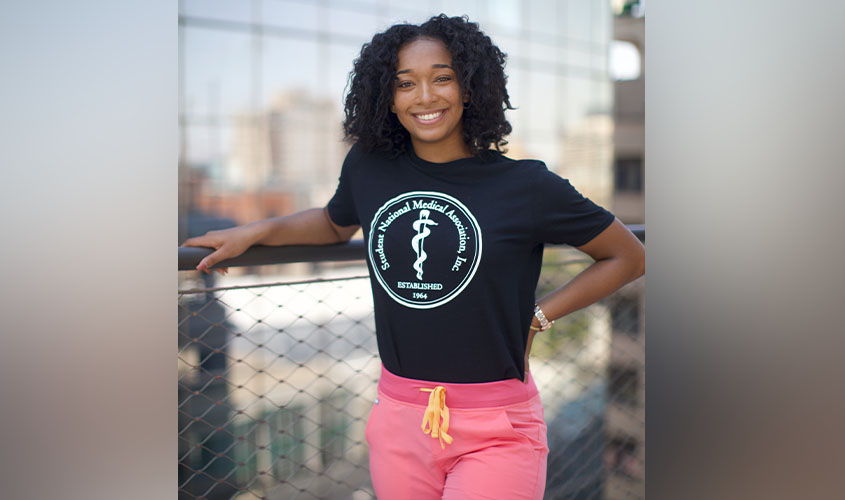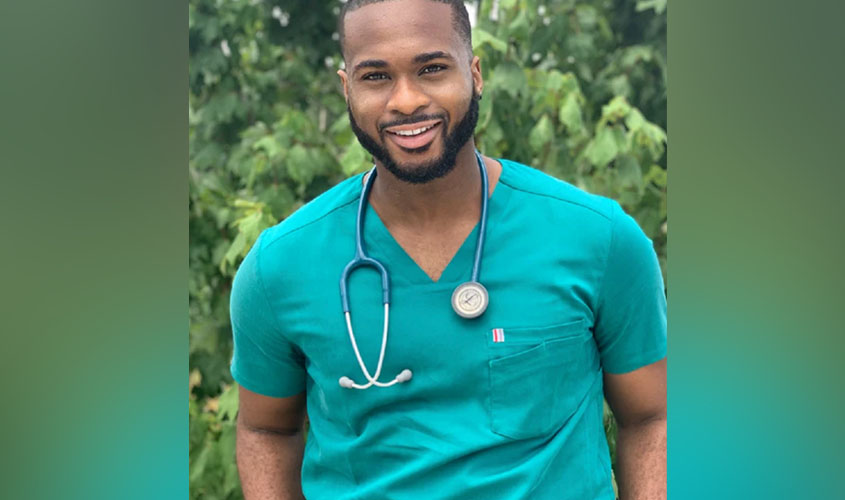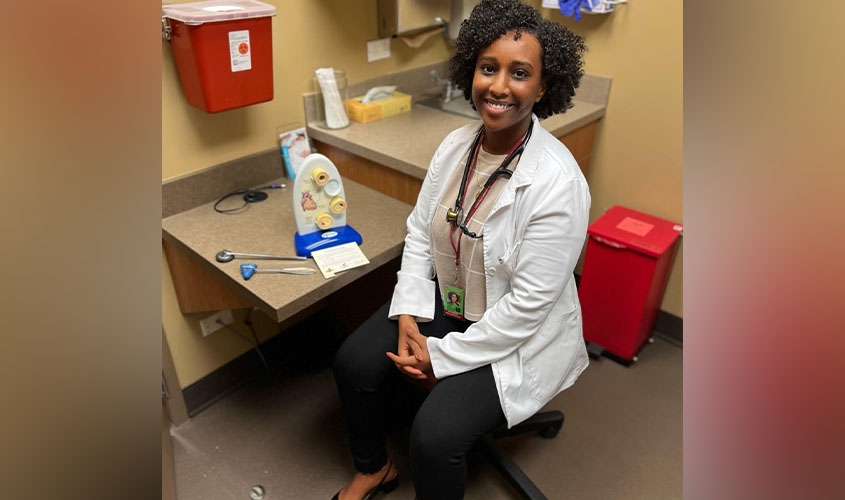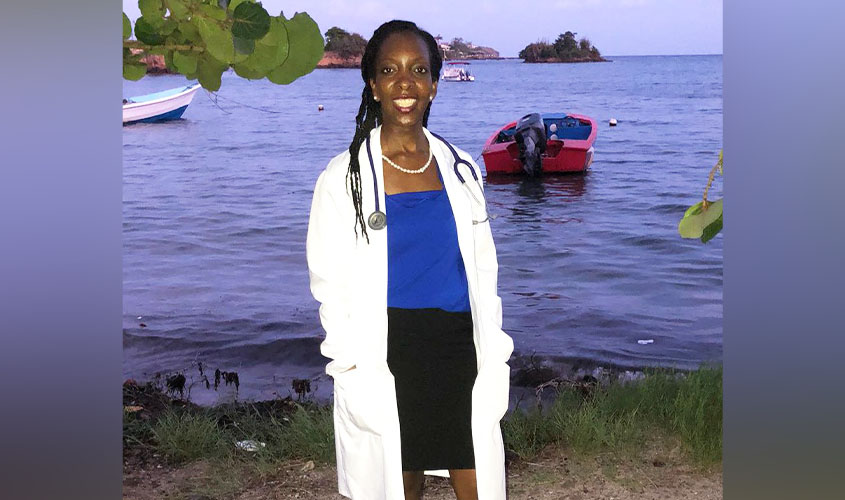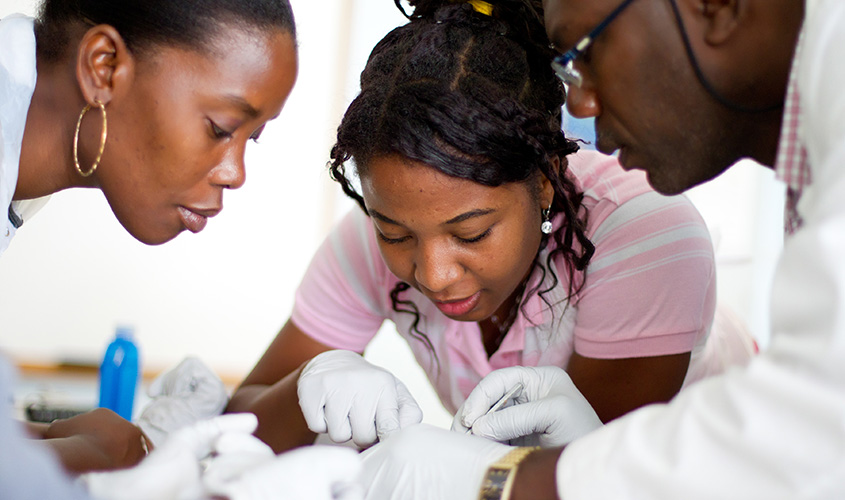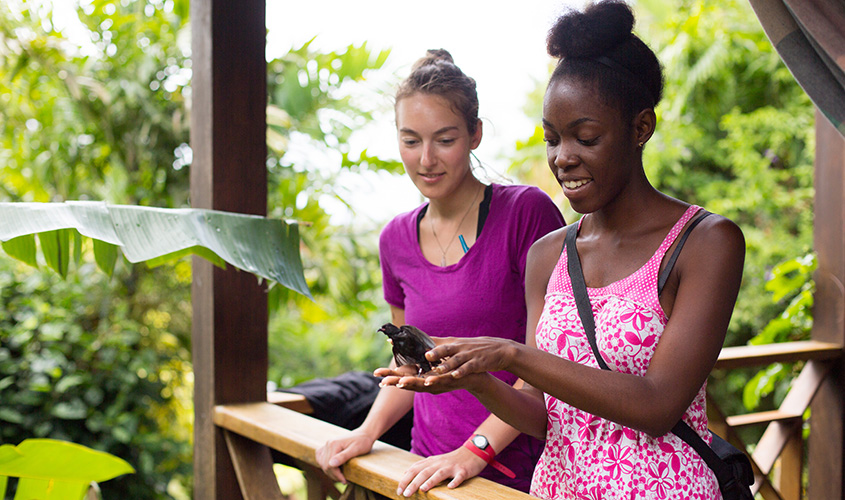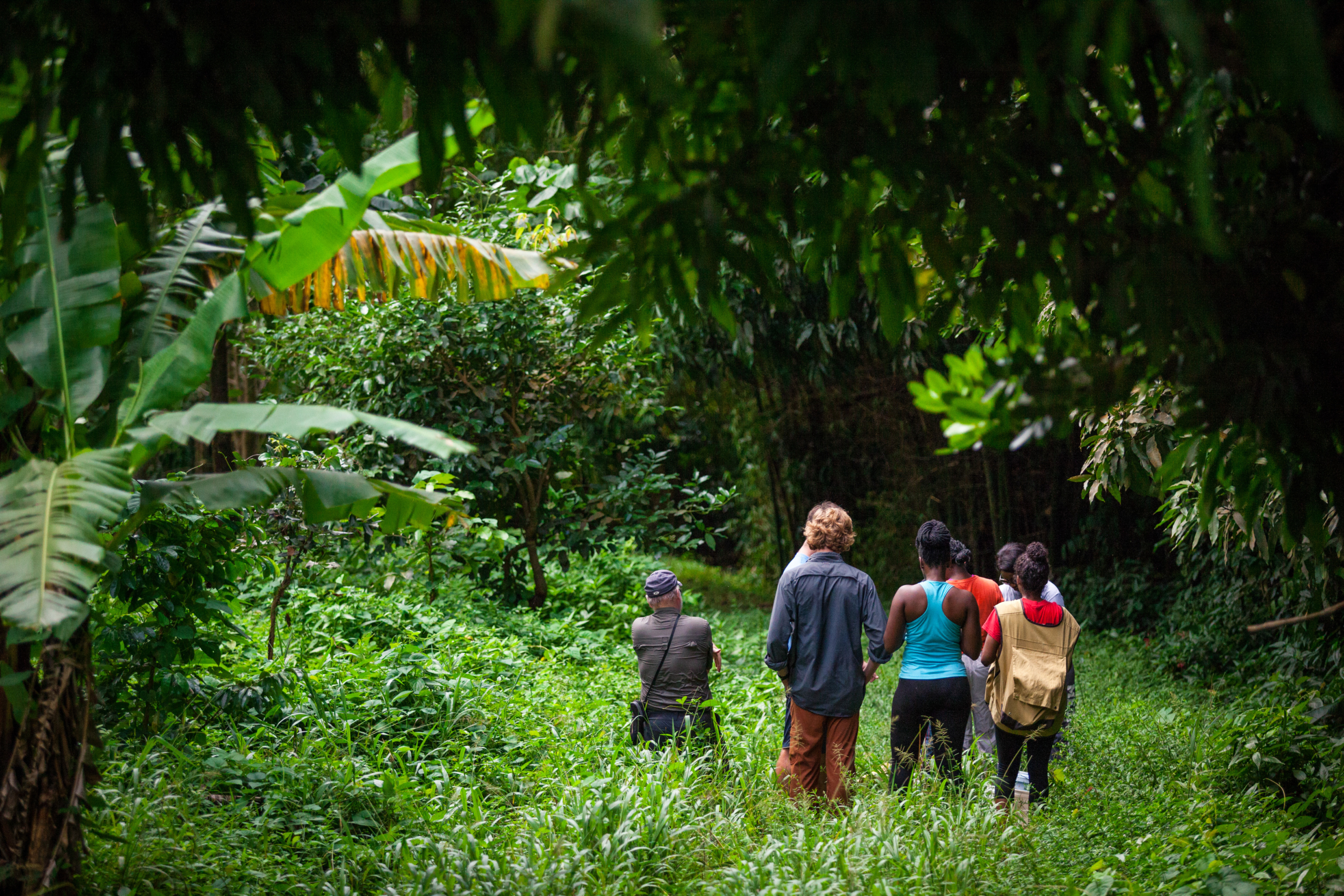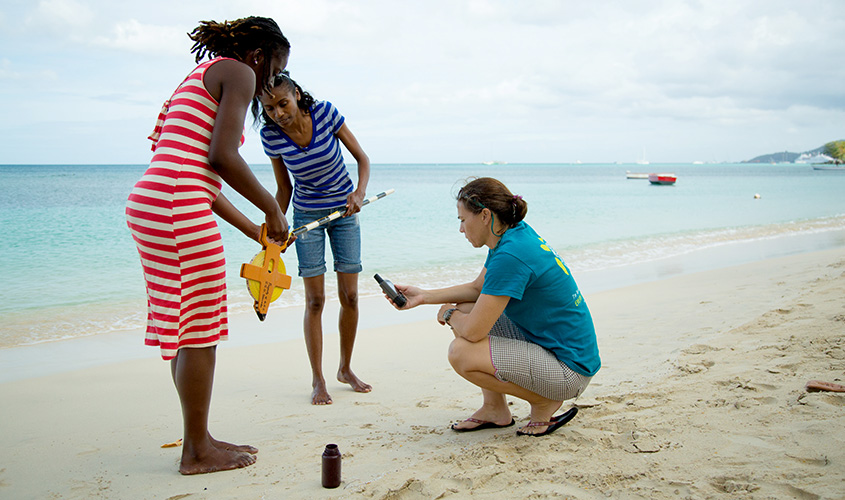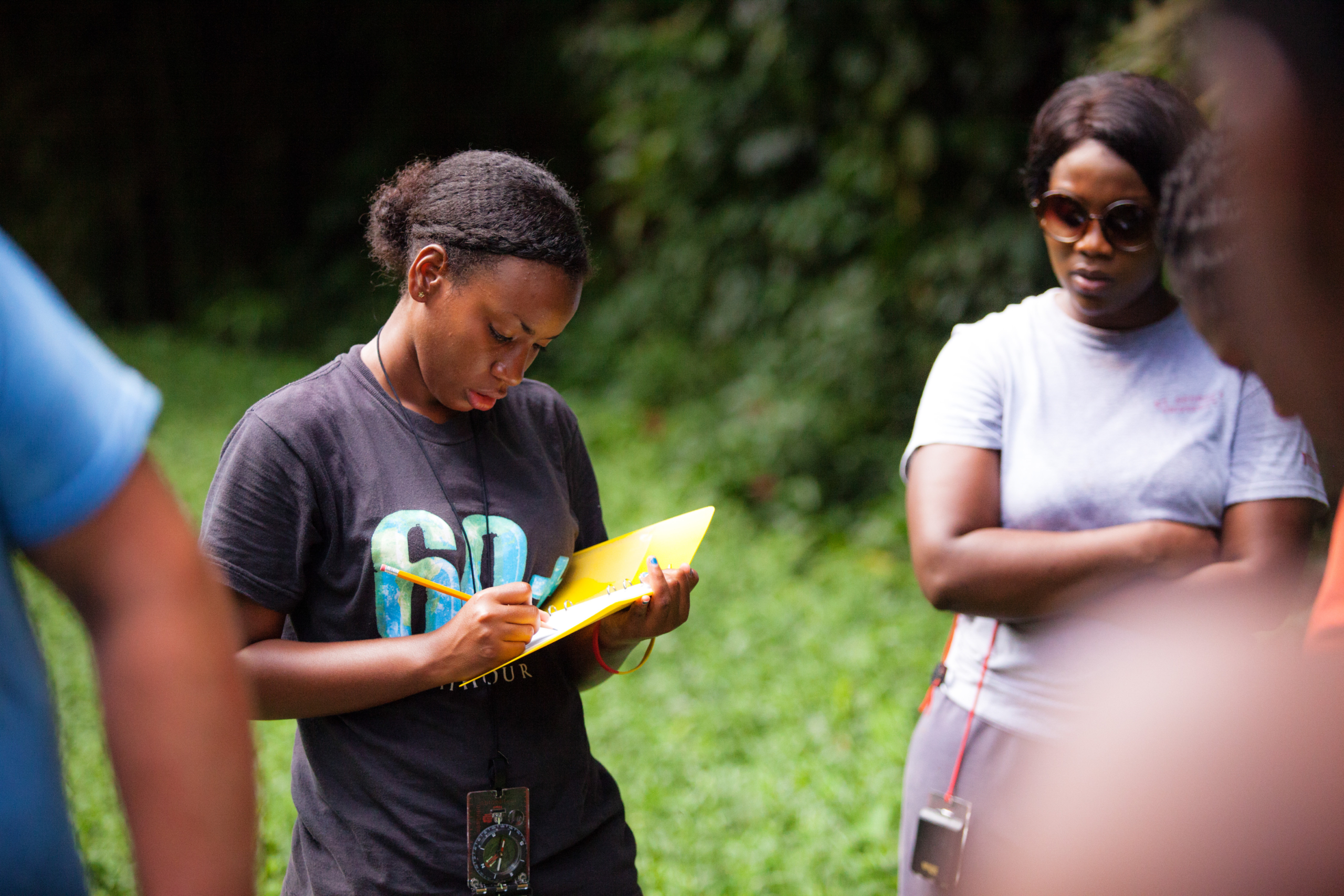SVM Recognizes Academic Excellence and Remarkable Service at Fall Term Awards Ceremony
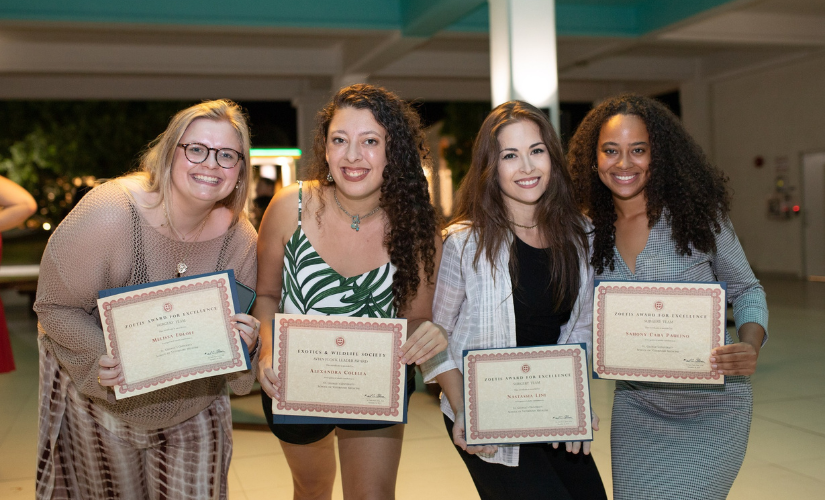
In a celebration of excellence and in honor of the outstanding achievements made by faculty, staff, and students, the School of Veterinary Medicine hosted its bi-annual SVM Awards Ceremony on November 18 in Bourne Lecture Hall. More than 20 sets of awards were presented to faculty and staff who demonstrated remarkable service and commitment to the veterinary medical school and to students who achieved high levels of academic success, professionalism, and displayed an exceptional work ethic.
“It’s such an important aspect of the School of Veterinary Medicine to honor the very special achievements of faculty, students, and staff. It brings the whole community together with a sense of unity,” stated Dr. Neil Olson, dean of the SVM. “We really are one family and it’s great to be a part of this joyous occasion. I think that the students in particular will have long memories of this evening, and I look forward to sharing in many more of these kinds of celebrations.”
“With this being the first in-person SVM awards ceremony since the COVID-19 pandemic, there was an air of gratitude and joy at being able to gather once again for this special occasion. There was a wonderful energy present throughout the ceremony, and the love and support were palpable.”
In addition to a wide range of traditional awards, student organizations could also participate in nominating and selecting students, faculty, and staff. One of the new awards presented this term, for example, was the Tail WAG Award. The award winner, Dr. Tara Paterson, an associate professor in the Small Animal Medicine and Surgery Department at SGU, was selected by the Wellness Aide and Guidance (WAG) student organization. The award honors a student or faculty member who works hard to further the mission of WAG, by helping the Pothounds of Grenada.
“This award is very special to us because it is our first,” shared Courtney Glotzer, co-founder of WAG. “We want to thank Dr. Paterson because she showed us her true dedication to our more intricate cases and always was there when we needed guidance. She is truly special to our club, and we will always appreciate her because of her motivation and dedication to our Pothounds.”
The ceremony also recognized 32 new inductees into the Alpha Delta Chapter of the Phi Zeta Honor Society—12 from Term 5 and 20 from Term 6. Earlier this month, students, faculty, and alumni gathered to celebrate during a ceremony at the University Club. Phi Zeta is the national veterinary honor society created to recognize students for their superior academic achievement. From its inception, it has been the aim of the organization to stand for constant advancement of the veterinary profession, for higher educational requirements, and for high scholarship.
“With this being the first in-person SVM awards ceremony since the COVID-19 pandemic, there was an air of gratitude and joy at being able to gather once again for this special occasion,” said Dr. Paterson, who also serves as chair of the SVM Awards Committee. “There was a wonderful energy present throughout the ceremony, and the love and support were palpable.”
SGU Island Veterinary Scholars Program (Boehringer Ingelheim)
Adrian Jones, Jillian Luscinski, Niharika Verma
Outstanding Colleague Awards
Term 1: Cheyenne Koinzan
Term 2: Becca Jenkins, Alexandra Prince
Term 3: Sydney Garcia
Term 4: Sudarshini Coimbatore, Paige Coughlin
Term 5: Molly Gin, Gabrielle Rivera
Term 6: Briana Kinsey
Dean Olson’s Award for Academic Excellence
Paula Ulyak, Alexis Tedesco, Whitley Young, Juana Argiro, Brianne Flanagan, Chelsea Wright, Courtney Duguay, Sarah Hendrickson, Zerina Burovic, Luis Davila, Hannah Wentland, Emily Meade, Brooke Hottois
Adrienne Lotton Memorial Award
Briana Kinsey
Zoetis Revolution Awards of Excellence
Small Animal Internal Medicine: Madison Kucinick
Small Animal Surgery: Daniel Ingram
Equine Medicine and Surgery: Acacia Johnson
Food Animal Medicine and Surgery: Megan Gilmore
Scholarship of Service Award: Cassidy Morales, Courtney Glotzer, Erin Maud
Surgery Team: Sahony Caba Paulino, Melissa Edloff, Nastassia Lini, Sarah Voors, Molly Ginn, Spencer Trinca, Julia Derr, Macey Cropski
Student Research Award: Adrian Jones
**NEW** Dr. Jim Nave Award for Excellence in Clinical Practice
Amanda Rottman Torres
SVM Alumni Scholarship Award
Brianna Auino-Moreta
Giant Paws Giant Hearts Foundation “Hercules” Award
Cobi Gilbeau
PAWS Recognition for Term 6 Facilitators
Taylor Nealy, Antonia Nickleberry, Peter Arena, Taryn Paquet, Melissa Ballantyne, Briana Kinsey, Peyton Dillon, Samantha Batchelor, Kira Rasmussen
SCAVMA: Student Chapter of the AVMA
SAVMA Award: Carley Jones, Sloane Hoffman, Ashley Schimshock
Most Outstanding E*Board Member: Fabiola Casanova-Crespo
The Feral Cat Project
Most Valuable Trapper: Ana Villarreal
Most Valuable Faculty/Staff: Francesca Ivaldi
Veterinary Public Health Committee
One Health One Medicine Community Leader Award: Cassandra Morales
SGUSVM Large Animal Society
Ace of Initiative Award: Ashlyn Dykes
**NEW** IVMC: Integrative Veterinary Medicine Club
Outstanding E-Board Member: Heidi Beck
SVM Wellness Committee
Wellness MVP Award: Eryn Ebinger Christian
**NEW** WAG: Wellness Aide and Guidance
The Tail WAG Award: Dr. Tara Paterson
AAARF: Angels in Armor Animal Rescue Fund
Friends of AAARF Awards: Sara Miner
The Archangel Award: Dr. Thomas Hanson
**NEW** P&E: Pride and Equality
Outstanding Faculty: Dr. Anne Corrigan
Excellence in DEI: Paige Coughlin
SCACVIM: Student Chapter of the American College of Veterinary Internal Medicine
Internal Medicine MVP Award: Patrick (JJ) Byrnes
SVECCS: Student Chapter of the Emergency and Critical Care Society
Outstanding 6th Termer Award: Amanda Rottman
SCASV: Student Chapter of the Association of Shelter Veterinarians
Shelter Scholar Award: Victoria Flaherty
Shelter Star Award: Marta Lanza-Perea
SCAVDS: Student Chapter of the American Veterinary Dental Society
Superior Extractor Award: Dr. Francesca Ivaldi
SNP: Spay Neuter Pothound
Pothound Student Hero Award: Brianna Kroning
Pothound Faculty/Staff Hero Award: Quacy Matthew
SCACVP: Student Chapter of the American College of Veterinary Pathologists
The MVP (Most Valuable Pathologist) Award: Taryn Paquet
EWS: Exotics and Wildlife Society
Avian Flock Leader Award: Alexandra Colella
EWS and VSHS Double Whammy Award: Dr. Sophie Moittie
VSHS: Veterinary Student Herpeteogical Society
The Gallant Gecko Award: Kaylee Freeman
WVLDI: Women’s Veterinary Leadership Development Initiative
WVLDI Warrior Award: Bianca Pinto
**NEW** WAVMA: World Aquatic Veterinary Medicine Association
MVP: Most Valuable Porpoise Award: Rayne LeBlanc
SVM Surgery Club
The Sharpest Scalpel Award: Brian Norton
SGA: Student Government Association
SGU SVM Outstanding Faculty Term 1-3: Dr. Mahesh Deokar
SGU SVM Outstanding Faculty Term 4-6: Dr. Talia Guttin
SGA SGU Awards of Excellence Term 1-3: Mr. Keith Miller
SGA SGU Awards of Excellence Term 4-6: Dr. Mercedes Valasquez de Zerpa
George B. Daniel Award: Brie Kinsey
The Pinckney Parasitology Award
Crissy (Janeila) Benjamin and Helena Curbelo
DES Recognition Awards
Emily Shin, Cobi Guilbeau
Diana Stone Public Health award
Janine Wettergren
SGUSVM Outstanding Staff Awards
Technical Staff: Curtis Hopkin
Administrative Staff: Serana Patino
Zoetis Award for Research Excellence
Dr. Arno Werners
Hill’s Golden Apple Teaching Award
Dr. Talia Guttin
Alpha Delta Chapter of the Society of Phi Zeta
Fall 2022 Inductees
Term 5 Inductees: Logan Bernstein, Lauren Dunbar, Amanda Ernst, Anca Gagliardo, Celine Gellineau, Adrian Jones, Maureen Kruhlak, Hannah Lavin-Sauchenco, Selina Nackley, Allison Nickell, Danielle Sackett, Taylor Stanton
Term 6 Inductees: Sean Anderson, Letty Bonilla, Riley Burrows, Yvana Ephraim, Melissa Ferguson, Gabriela Frontanes, Nicole Jennings, Charlene Kriegsman, Madison Kucinick, Brianna Aquino-Moreta, Kassidy Leon, Leandra Margolies, Cassandra Morales, Cristians Rivas Morales, Brittney Nguyen, Kendra Rehnblom, Aleeka Roberts, Sara Schectman, Stephanie Smick, Abigail Wilebski
– Ray-Donna Peters
Related Reading
- SVM celebrates excellence at spring term awards ceremony
- Outstanding achievements celebrated during SVM awards ceremony
- High-achieving SVM students and faculty honored at spring virtual awards ceremony
